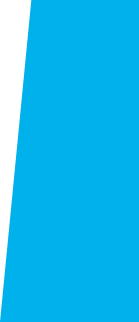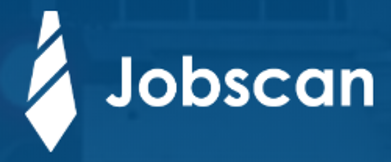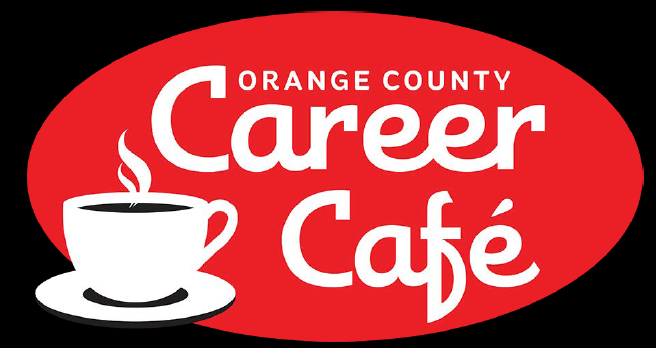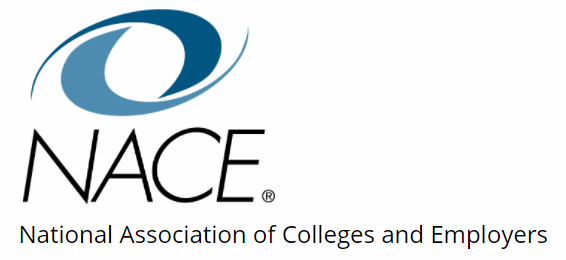
Entering Your Career
Entering your Career
Use this page to learn about Resume Writing and Job Search Strategies to increase opportunity in the Job Market
Resume and Cover Letter Resources
- A resume is a concise document that provides an overview of an individual's education, work experience, skills, achievements, and qualifications.
- The purpose of a resume is to showcase a candidate's suitability for a specific job by highlighting relevant professional and academic experiences.
- Resumes are typically submitted as part of a job application and are used by employers to assess the qualifications of potential candidates.
- Typically includes sections such as contact information, objective or summary, education, work experience, skills, and additional sections like certifications or languages.
- Technical and Transferable Skills
- Generally follows a standardized format with bulleted lists for easy readability. It is typically kept to one or two pages, presenting a high-level overview of your professional history.
Here is an example of a resume
Sample Resume- Generally written in a more formal and concise tone. Bullet points are often used to convey information efficiently.
- In summary, a resume provides a structured overview of your professional background
NEXT STEPS: Review the additional following resources on resume writing, create/reformat your resume, and follow up with someone from Career Services (or other people you trust) to review your resume
Career Coach has a Resume Builder tool to help you get started on creating your resume
Career Coach
Many major companies use ATS, or Application Tracking System, to see how much an applicant’s resume matches up with the job description. Use Jobscan to find how much your resume is tailored to a specific job for which you are applying. Copy and paste your resume and the job position to discover ways to become more noticed in an application and increase your chances for an interview!
ADDITIONAL RESOURCRES
A cover letter and a resume serve different purposes in the job application process, and they complement each other to provide a comprehensive picture of a candidate's qualifications. Here are the key differences between a cover letter and a resume:
- A cover letter is a document that accompanies your resume and serves as a personalized introduction to a potential employer. It allows you to express your interest in a specific job, highlight key experiences, and explain how your skills align with the job requirements.
- Follows a more narrative format containing a salutation, an introduction that explains the purpose of the letter, body paragraphs that highlight relevant experiences and skills, and a closing paragraph expressing gratitude and interest.
- It is usually one page in length and is customized for each job application.
- Highly personalized for each job application. It allows you to address the specific requirements of the job, explain how your experiences are relevant, and demonstrate your enthusiasm for the position.
- Provides an opportunity to showcase your personality and express your motivation for applying. The tone is more conversational and can reflect your enthusiasm for the position.
- Submitted alongside the resume and often requested by employers to understand the context of your application.
- Expands on specific experiences, provides context for career transitions or gaps, and explains why you are a good fit for the role.
Resourcres on Cover Letter Writing
- UCLA CAREER GUIDE (SEE CHAPTER 6 for resumes and cover letters)
- 4 Cover Letter Examples That’ll Make Writing Yours Way Easier
Gaining Career Experience
Volunteering is an accesible way of exploring to build interest, experience, knowledge and skills in your career journey. Review the following resourcre to learn about the value of volunteering in relation to Career
Value of Volunteering |
VolunteerMatch |
 |
JustServe.orgVolunteer website where volunteers may search for places to assist their communities and provide opportunities to help those in need |
An internship is a short-term work opportunity provided by organizations to individuals, often students or recent graduates, to gain practical experience in a specific industry or field. Internships are structured to provide hands-on exposure to the working environment, allowing individuals to apply theoretical knowledge gained in the classroom to real-world situations.
Review the following document for key features of Internships and Tips on Searching for Internships
Key features of internshipsHere are some resourcres to search for internships
 |
|
 |
|
 |
Networking is a critical aspect of personal and professional development, playing a crucial role in career advancement and success. Review the following document to learn about key reasons highlighting the importance of networking:
NetworkingResources to learn more about Networking
3 Powerful Networking Strategies that Never Fail (Entrepreneur.com)
Informational Interviewing
An informational interview can be both a formal or informal conversation between you and a professional in a field of your interest. Informational Interviews provide you with an opportunity to ask questions to find out specific information about a particular industry or role from someone who is already established in that field. It gives you a chance to ask questions about the person’s role, the company, and the industry.
It is a way to test the waters before entering the career field.
- The goal is not to request a job but to gain more information about your field from someone who works in it.
- Before you begin, make sure you are conducting your own research to generate questions that address information that is more clear coming from professionals with first-hand experience.
- You can reach out to requests for informational interviews with anyone who you feel might provide you with valuable information, insight, and inspiration for a field of your interest - professors, classmates, colleagues, friends, family, etc. These conversations can occur in person, over the phone, through Zoom or via email.
- Contact to request a meeting that is convenient for the individual or group you are meeting. Remember, they are taking time out of their day to meet with you; they may be choosing to meet with you out of the joy of sharing their life experiences and passion, so be respectful of their time.
Informational Interviewing: Reaching Out and What to Ask
Check out this informative guide on informational interviews for additional assistance
Informational interviewing is about expanding knowledge, but it could be also about opportunity. Consider the possibility that with a good impression, the person you are interviewing could provide you with information and additional connections to continue your informational interviewing or even professional experiences, such as internships and work experiences. It is all about building your network, and this is a vital way to start.
LinkedIn is a professional social networking platform, often called the “Facebook for professionals” that, as per their mission statement, “connects the world’s professionals to make them more productive and successful.” With over 690 million users around the world, it is an essential tool to expand your networking efforts.
Source: About LinkedIn
Getting Started
We suggest taking the following steps to get started with LinkedIn.
- Create a profile and gather a professional photo. Pro tip: Do not use a selfie or a photo that you have cut someone else out of.
- The checklist developed by LinkedIn will help you get started in developing a profile. Another Pro tip: If you already have a resume developed, it is easier to set up your profile.
- After completing your profile, meet with a career counselor for further pointers.
- Check out BestColleges' informative guide covering LinkedIn. Their guide covers top LinkedIn profile tips for college students and teaches how to maximize the platform's exceptional capabilities. Review the guide below:
BONUS: After creating your profile and adding El Camino College as part of your education section, check out El Camino College’s LinkedIn page and utilize the alumni tool to reach out to current students and alumni to expand your network! See Informational Interviewing section on how to approach individuals to connect with.
The possibilities of LinkedIn are more than can be explained on a single page. We suggest creating your profile, check out LinkedIn for Students, the El Camino College LinkedIn page, and make an appointment with a career counselor to talk about how else Linkedin can help you in your career journey.
Additional Resources about LinkedIn
Three ways you can get started on LinkedIn today
LINKEDIN LEARNING: Rock Your LinkedIn Profile
Building Your Network In A Virtual World
Why LinkedIn Recommendations and Endorsements Should Matter To You
Job Search Strategies
Starting a job search can be a structured process. Review the following documw=ent
before beginning your job search:
Remember, job searching is a dynamic process, and flexibility is key. Regularly evaluate and adjust your approach based on feedback and results to increase your chances of success.
The purpose of job interviewing is to provide employers with an opportunity to evaluate and assess candidates for a specific job opening. Job interviews serve several essential purposes in the hiring process:
Assess Qualifications:
Interviews allow employers to delve deeper into a candidate's qualifications, skills, and experience beyond what is outlined in the resume. Employers can ask detailed questions to understand how a candidate's background aligns with the job requirements.
Evaluate Fit:
Employers use interviews to assess the cultural fit of a candidate within the organization. They look for qualities such as teamwork, communication skills, and alignment with the company's values and mission.
Confirm Information:
Interviews provide an opportunity to verify information provided in the candidate's application, such as work history, achievements, and skills. Employers may ask for clarification or additional details to validate the candidate's claims.
Assess transferable Skills:
Transferable skills, including communication, interpersonal skills, problem-solving, and adaptability, are often assessed during interviews. Employers want to understand how well a candidate can work with others and handle various situations.
Understand Motivation:
Interviews help employers gauge a candidate's motivation and enthusiasm for the position. Questions about why the candidate is interested in the role and the company provide insights into their level of commitment.
Behavioral Assessment:
Behavioral interviews focus on past behaviors and experiences as indicators of future performance. Employers may ask candidates to provide specific examples of how they handled challenges or demonstrated certain skills in previous roles.
Clarify Expectations:
Candidates have the opportunity to ask questions and gain a clearer understanding of the job role, company culture, and expectations. This helps both parties determine if there is a mutual fit.
Build Rapport:
Interviews allow for personal interaction, helping employers assess a candidate's communication style, professionalism, and ability to build rapport. Positive interpersonal skills are crucial in many work environments.
Provide Additional Information:
Employers can use interviews to provide additional information about the company, team, and work environment. This helps candidates make informed decisions about whether the organization is the right fit for them.
Finalize Impressions:
Interviews often serve as the final stage in the hiring process, allowing employers to make final impressions and decisions about the candidates. This includes considering how well candidates align with the company's goals and values.
Overall, job interviews are a crucial step in the hiring process, providing a two-way interaction where both employers and candidates can gather information, clarify expectations, and determine if there is a good fit for the role and the organization.
Resourcres to learn about Interviewing
- Your Ultimate Guide to Answering the Most Common Interview Questions - The Muse
- Types of questions during an interview
- Interview Cheat Sheet
- Skills Quick Reference - from CareerNZ
- Top 50 Interview Questions
- OC Career Cafe - Interview - How to Shine (the STAR Method)
- Using PARLA to Frame Your Interview Answers
The most common way for job searching is through online job boards. We recommend that as you search through job boards that you utilize the other methods of networking, informational interviewing, volunteering, and LinkedIn. Only by taking multiple efforts to connect and apply do you increase your chances of obtaining a desired position.
Job Speaker |
Browse through El Camino College’s easy and interactive job board site to find the perfect employee/employer. El Camino College makes no recommendations or guarantees regarding employers or employees. We are acting as a referral service only and provide these links only as a convenience. El Camino College assumes no liability for acts of omissions by third parties or for material supplied by them. No personal or private employment (babysitting, caregiver, roommate, volunteer) postings are accepted. |
|
|
|
|
THE JOB-SEARCH RESOURCES STUDENTS USE, FIND MOST USEFUL by NACE Staff |
|
|
Another job and internship search resource for college students. Be sure to check out their entry-level job seeker advice. |
|
 |
|











